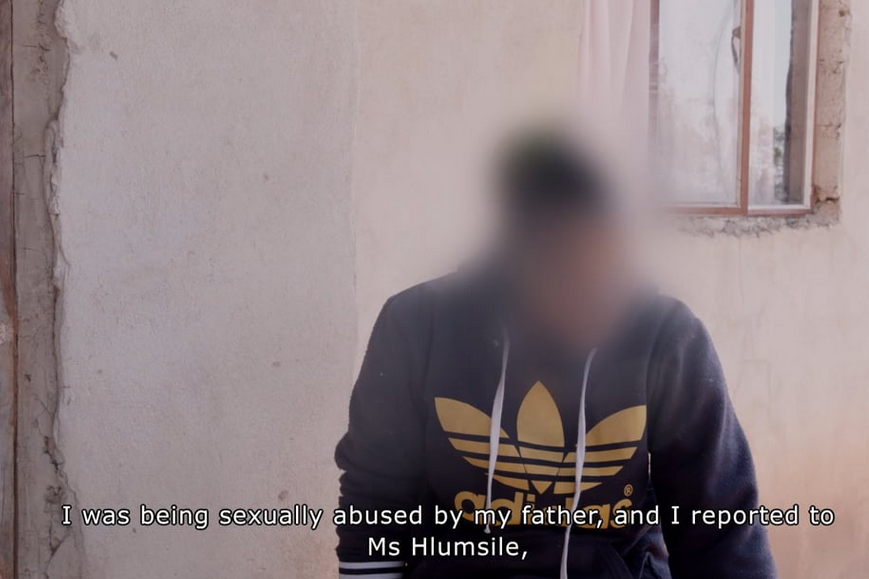
Nov 25, 2019 | Multimedia items, News, Video clips
The ICJ just launched a 15 minute documentary showing contributions by the ICJ and local human rights defenders in bringing the Sexual Offences and Domestic Violence (SODV) Act to pass in Mbabane, Eswatini.
The documentary was launched at an SODV Act media training held with the Cooperation for the Development of Emerging Countries (Cospe) and the Editor’s Forum. The training was aimed at taking a human rights-based approach to understanding the Act, following pushback from those who have expressed the view that parts of the Act are an as an affront to Swazi tradition and culture.
In an effort to combat the various challenges presented by SGBV, the Kingdom of Eswatini introduced the Sexual Offences and Domestic Violence (SODV) Act in 2018. The Act complies with its commitments under international and regional human rights law to fight the scourge of SGBV in the country.
The documentary highlights the way in which the Act is expected to be instrumental in combatting the scourge of sexual and gender-based violence, as well as areas in which it has been contested. The documentary was well-received by participants of the training and opened up an engaging dialogue about its usefulness.
The media is at the forefront of informing public discourse about the Act and it is hoped that this training provided some much-needed clarity around the Act.
Watch the documentary:
Contact
Khanyo Farisè (Legal Associate): e: Nokukhanya.Farise(a)icj.org
Shaazia Ebrahim (Media Officer): e: shaazia.ebrahim(a)icj.org
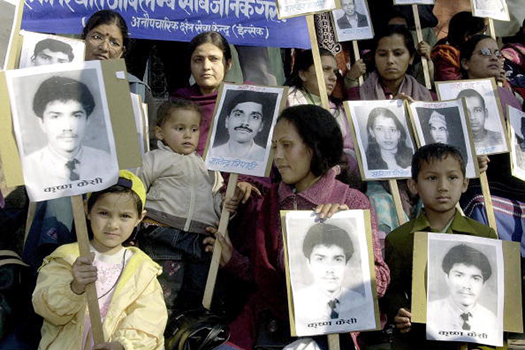
Nov 25, 2019 | News
Nepal has made no real progress on questions of justice, truth and reparations for victims of gross human rights violations and abuses during its 10-year conflict, the ICJ, Amnesty International, Human Rights Watch (HRW) and TRIAL International said today.
The Comprehensive Peace Agreement to end the war was signed on November 21, 2006.
While two commissions have been set up to address conflict-era atrocities, they have not been effective and impunity and denial of access to justice to victims remain prevalent. The four human rights organizations are particularly concerned about the recent moves that suggest that the government will go forward with the appointing of commissioners without making necessary reforms to the legal framework.
“Last week marked the 13th anniversary of the Comprehensive Peace Agreement that ended the conflict in Nepal. It is astonishing that so little progress has been made in responding to the clearly articulated concerns and demands of conflict victims,” said Frederick Rawski, ICJ’s Asia-Pacific Director. “These demands have included a transparent and consultative process for the appointment of commissioners, and a genuine good-faith effort by political leaders and lawmakers to address serious weaknesses in the existing legal framework.”
On November 18, a five-member committee formed by the government to recommend names for commissioners to be appointed to the Truth and Reconciliation Commission and the Commission on the Investigation of Enforced Disappearances published a list of candidates. Concerns have been raised by victims and civil society that the government will simply re-appoint past commissioners or make political appointments that will not be adequately impartial and independent.
“It is deeply disappointing that the government has repeatedly attempted to appoint the commissioners without adequate consultation and transparency . The commissions will not gain the trust of the victims and the international community if the political parties continue to interfere in the appointment process,” said Biraj Patnaik, South Asia Director at Amnesty International.
Importantly, the move suggests that the commissions will be re-constituted without amending the legal framework governing the transitional justice process and ensuring its compliance with Nepal’s international human rights law obligations, as directed by Nepal’s Supreme Court and demanded by civil society and victims.
Victims and civil society organizations have issued public statement making it clear that they oppose any appointments prior to the amendment of the legal framework. Notably, the National Human Rights Commission, in its statement commemorating 13th Anniversary of CPA, stated that “…the commission will not support any decision, work or activities that might hurt the sensitivity of the conflict victims…”.
“The government’s move has not only undermined victims’ role in the transitional justice process, but has also once again brought into question its commitment to uphold its international law obligations and ensuring justice for conflict-era crimes,” said Tomás Ananía, TRIAL International’s Nepal Program Manager.
The ICJ, Amnesty International, Human Rights Watch and TRIAL International have repeatedly expressed concern that effective transitional justice mechanisms require strong legal foundations consistent with international law and good practices, and the political will to address the concerns of victims of the conflict. All four organisations reiterated their calls to amend the the 2014 Transitional Justice Act to make it consistent with the Supreme Court’s rulings and international human rights standards, as well as for the initiation of a genuine consultative and transparent process for the appointment of commissioners.
Concerns raised about the existing, and proposed, legal frameworks include: disparities between the definitions of specific crimes under international law and human rights obligations and violations under national, and international law; inadequate provisions to ensure that serious crimes under international law are subject to criminal accountability (including punishment proportionate to the seriousness of the crimes); and a reliance on compensation at the expense of other forms of reparation and remedy for conflict survivors and their families.
Under the principle of universal jurisdiction states may make it possible for their domestic criminal justice system to investigate and prosecute crimes such as torture, committed by any person, anywhere in the world.
This means that a citizen of any country, including Nepal, suspected of such crimes faces the risk of arrest and prosecution for these crimes in countries that apply universal jurisdiction. This is more likely if the Nepali authorities do not appear able and willing to prosecute those responsible for such crimes, the organizations said.
“After initial pledges to ensure truth, justice, and reparations for conflict victims, it appears that the government is once again determined to protect those responsible for the crimes,” said Meenakshi Ganguly, South Asia director at Human Rights Watch. “The international community should remind Nepal that whitewashing egregious crimes will not help to dodge universal jurisdiction.”
Contact:
Download the complete press-release in English and Nepali. (PDF)
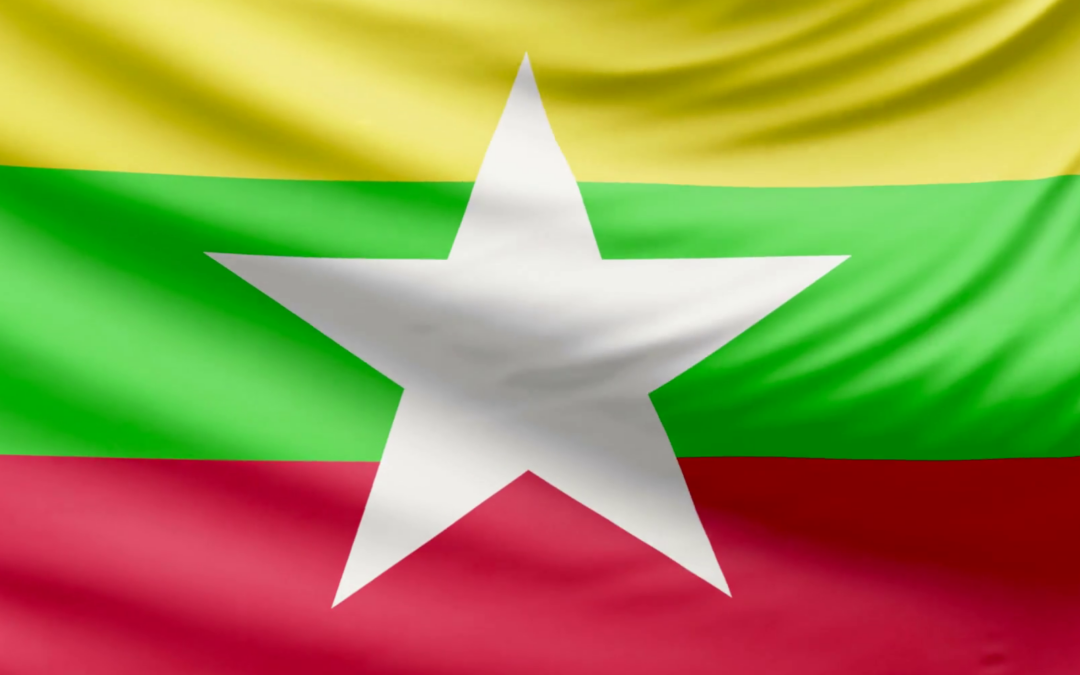
Nov 25, 2019 | Advocacy, News
The ICJ held a two-day workshop on 23-24 November 2019 in Mandalay on the application in Myanmar of international law and standards on freedom of religion and belief. Some 40 participants from across the country, including human rights defenders, religious leaders and lawyers who work on issues of freedom of religion or belief, attended the event.
The two-day workshop was conducted in order to provide a safe platform for participants to discuss pressing issues concerning the right to freedom of religion or belief (FoRB) in Myanmar, with a particular focus on protecting places of worship. It allowed participants to share challenges encountered in their spheres of activity and explore ways to address state regulations that disproportionately impact minority religions.
ICJ Associate Legal Adviser Jenny Domino introduced the international standards on FoRB applicable to Myanmar, including how FoRB affects other human rights such as the right to freedom of expression. She discussed the different constitutional approaches to protecting FoRB in Myanmar and the Philippines, and presented the applicable international standards relevant to the protection of places of worship in conflict settings. ICJ Legal Researcher Dr Ja Seng Ing shared the legal and practical challenges to protecting places of worship in Myanmar.
Based on their own independent research, the participants discussed restrictions placed on the practice of religion or belief, particularly with respect to places of worship. The participants shared challenges they encountered while working on FoRB issues, such as the shrinking civic space for inter-religious dialogue. They also discussed possible strategies to push for legislative and administrative reform to protect FoRB in Myanmar.
The workshop is part of the ICJ’s ongoing effort to convene civil society actors and lawyers in Myanmar with a view to advancing FoRB in the country, and builds on the ICJ’s regional work on this theme.
Contact
Ja Seng Ing, ICJ Legal Researcher, e: jaseng.ing(a)icj.org
Related material
Challenges to freedom of religion or belief in Myanmar, A Briefing Paper, October 2019
Primer on international human rights law and standards on the right to freedom of thought, conscience, religion or belief, January 2019
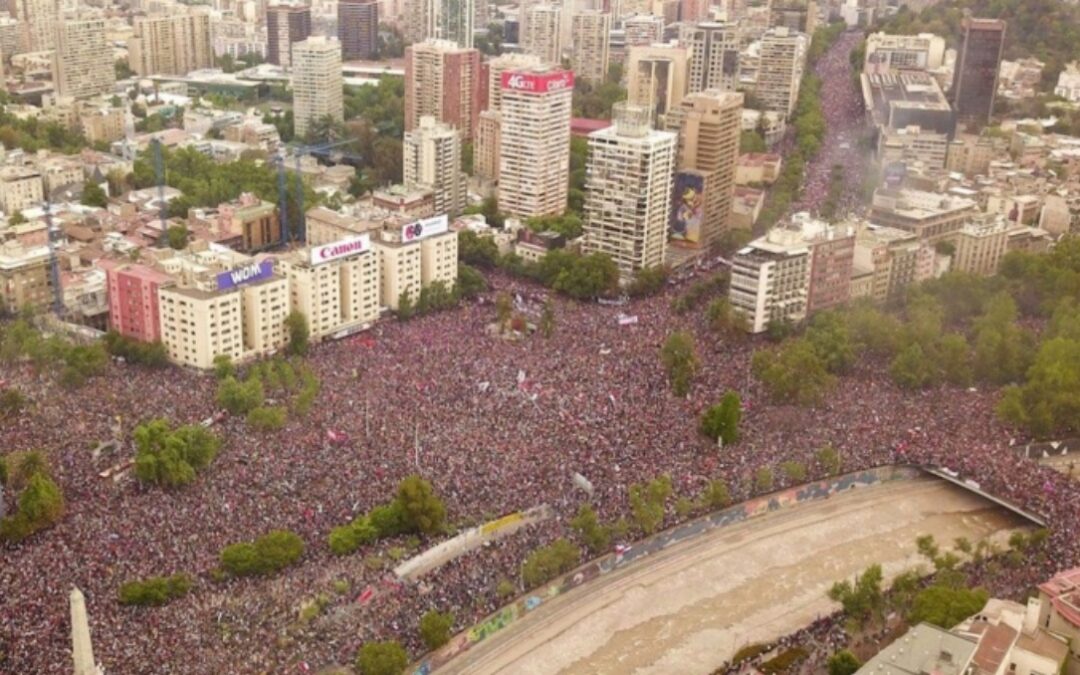
Nov 24, 2019 | Editorial, Noticias
Una opinión editorial de Alejandro Salinas Rivera, Comisionado de la CIJ (Chile)
A casi un mes de iniciadas las protestas sociales, las fuerzas políticas llegaron a un acuerdo que podría permitir abordar la crisis social evidenciada con las protestas.
Durante varios días, millones de personas salieron a las calles para solicitar reformas profundas para garantizar los derechos económicos, sociales y culturales. La mayoría de las protestas fueron pacíficas; sin embargo, algunos actos de violencia fueron perpetrados.
La reacción inicial de las autoridades gubernamentales y de otros líderes políticos no permitió abordar con seriedad las preocupaciones y las demandas ciudadanas. Además, hay denuncias sobre graves violaciones de los derechos humanos cometidas por miembros de la fuerza pública. Por ejemplo, el Instituto Nacional de Derechos Humanos (INDH) indicó que representa a 489 personas que sufrieron actos que pueden constituir violaciones a los derechos humanos, y hay más de 200 personas heridas en los ojos por balines de goma.
Acuerdo político alcanzado recientemente
El 15 de noviembre, los partidos políticos con representación parlamentaria (a excepción del Partido Comunista y de pequeños partidos de izquierda), firmaron un acuerdo político que propone un camino para abordar la crisis: la definición de un procedimiento para adoptar una nueva Constitución.
Pero, ¿por qué es tan importante esto en Chile? Porque la Constitución chilena fue redactada y adoptada en 1980 durante la dictadura militar, y aunque se le han introducido modificaciones durante la democracia (1990), todavía refleja el modelo político y social que gobierna el país. La Constitución siempre ha sido considerada como una camisa de fuerza que impide introducir cambios sociales que el país necesita, ya que otorga al Estado un papel subsidiario en la garantía de ciertos derechos económicos y sociales.
El acuerdo político alcanzado estableció una hoja de ruta para realizar el cambio constitucional. Primero, en abril de 2020 se realizará un plebiscito para preguntarle a las personas: a) ¿Quiere usted una nueva Constitución? (Aprueba/ Rechaza); y b) ¿Qué tipo de órgano debiera redactar la nueva Constitución? (Convención Mixta Constitucional o Convención Constitucional).
En segundo lugar, después de los resultados del plebiscito, se llevarán a cabo las elecciones de los miembros que integrarán el organismo encargado de redactar la nueva Constitución (octubre 2020), y después de su redacción, habrá un plebiscito ratificatorio obligatorio.
Este acuerdo político genera esperanza para que se realice un cambio que permita abordar las demandas sociales y mejorar el diseño institucional que se encarga de garantizar los derechos económicos y sociales. Sin embargo, el acuerdo por sí solo no es suficiente. Es necesario, además, tomar medidas inmediatas que permitan lograr acuerdos sustanciales y fortalecer, ahora, la capacidad institucional.
Otras acciones que deben realizarse
Además del acuerdo político alcanzado, hay otras acciones que se deben realizar. Por ejemplo, se debe:
- Adoptar acuerdos políticos específicos que hagan viable el proceso constitucional acordado y que garanticen que dicho proceso responda a las demandas ciudadanas. Así, debe modificarse la Constitución para permitir la convocatoria al plebiscito, y se debe implementar dicho mecanismo en abril de 2020.
- Adoptar políticas públicas específicas para materializar los derechos económicos y sociales que no requieren cambios constitucionales; solo requieren voluntad política. Por ejemplo, se pueden introducir mejorías significativas a los sistemas de salud, de educación y de pensiones.
- Investigar, de manera pronta y efectiva, la actuación de la policía y de las fuerzas de seguridad en el marco de las protestas. Esto requiere una revisión completa de los protocolos de actuación y, posiblemente, la adopción de reformas institucionales.
- Investigar, de manera pronta y efectiva, las denuncias en contra de miembros de la policía y de las fuerzas de seguridad por violaciones graves de los derechos humanos y, cuando la evidencia lo amerite, enjuiciar y sancionar a los responsables. El rol independiente de los jueces y los fiscales es clave para cumplir con esta obligación.
- Investigar, de manera pronta y efectiva, los actos de violencia cometidos durante las protestas, y cuando la evidencia lo amerite, enjuiciar y sancionar a los responsables.
- Fortalecer las instituciones públicas, como las fuerzas policiales (Carabineros), el Instituto Nacional de Derechos Humanos, las oficinas gubernamentales a cargo de las políticas públicas sociales, entre otras.
En suma, el camino que se avecina no es fácil y está lleno de obstáculos para Chile, pero proporciona una esperanza para abordar la crisis social. Por ejemplo, cambiar la Constitución era una tarea pendiente de la democracia chilena, y ahora parece posible. Entre los próximos pasos se encuentra el diseño de un modelo político y social que garantice la equidad, que permita la solidaridad y que garantice plenamente los derechos humanos.
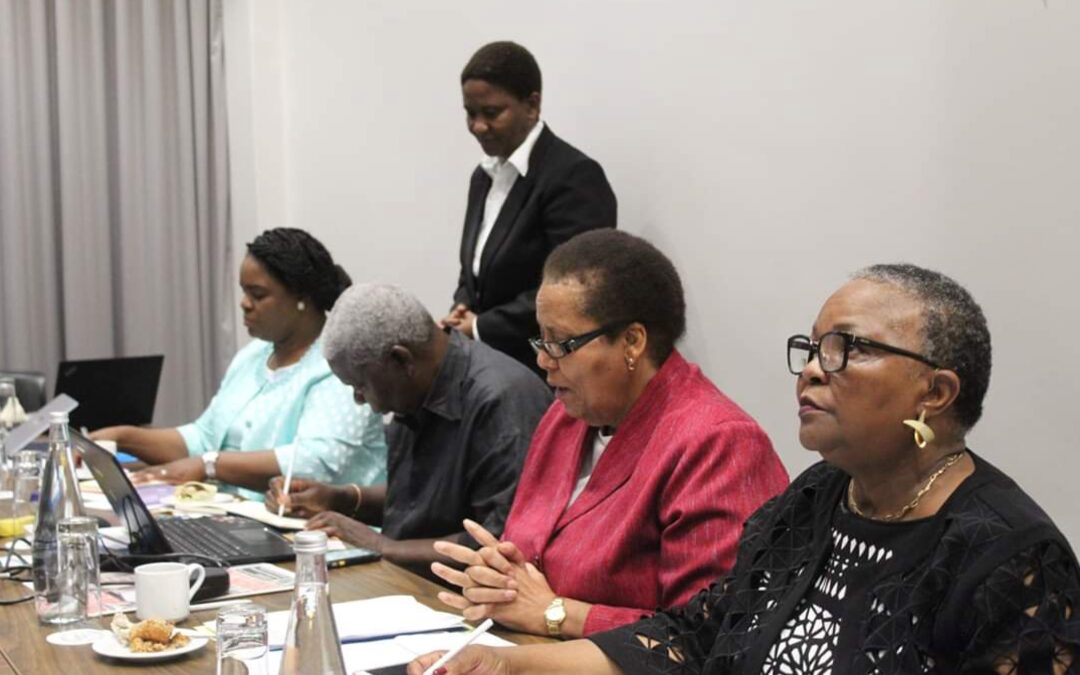
Nov 22, 2019 | News
A wide range of stakeholders in Mbabane, Eswatini came together to discuss the challenges they face in combating sexual and gender-based violence (SGBV) in the country.
On 21 November, the ICJ hosted a symposium with representatives of the Attorney General, Ministry of Justice, police, Human Rights Commission and Law Society on cases involving economic, social, and cultural rights and SGBV. The event was followed by an integrated meeting involving State officials in the justice sector to discuss the implementation of the Sexual Offences and Domestic Violence (SODV) Act was discussed.
The Kingdom of Eswatini faces widespread instances of SGBV and it is hoped that new initiatives, such the enactment of the Sexual Offences and Domestic Violence (SODV) Act in 2018, will be effective in addressing the scourge of SGBV in the country.
The symposium was led by Justice Qinisile Mabuza, Principal Judge of the Eswatini High Court and ICJ Commissioner, accompanied by ICJ Commissioners Justice Sanji Monageng of Botswana and Professor Michelo Hansugule of the University of Pretoria, and Justice of the High Court in Zimbabwe Amy Tsanga. The ICJ’s Senior International Legal Adviser Emerlynne Gil gave a presentation on gender stereotypes and international legal standards on SGBV ICJ Africa legal associate Khanyo Farisè and ICJ consultant Mary Pais Da Silva also participated in the symposium.
Speakers emphasized the critical role of the judiciary and other justice sector actors in ensuring that Eswatini meets its legal obligations under international human rights law, including standards governing the African region, to protect survivors of SGBV.
“The judiciary is a critical component in the intervention against SGBV. The judges have to know about human rights, appreciate what SGBV actually entails, understand what those violations mean, and the international standards and local roles where they exist. Judges also should be able to use jurisprudence from other jurisdictions to justify their decisions,” Commissioner Monageng said.
The participants of the symposium, were subsequently joined by representatives from the Department of Public Prosecutions (DPP), the One Stop Care Centre for sexual violence survivors, and the Deputy Prime Minister’s Office, came together to discuss the implementation of the SODV Act. Recommendations included better collaboration with judicial actors, the training of law enforcement agencies on receiving report of sexual violence, better case management and the development of forensic laboratories were made.
Contact
Khanyo Farisè (Legal Associate): e: Nokukhanya.Farise(a)icj.org
Shaazia Ebrahim (Media Officer): e: shaazia.ebrahim(a)icj.org









